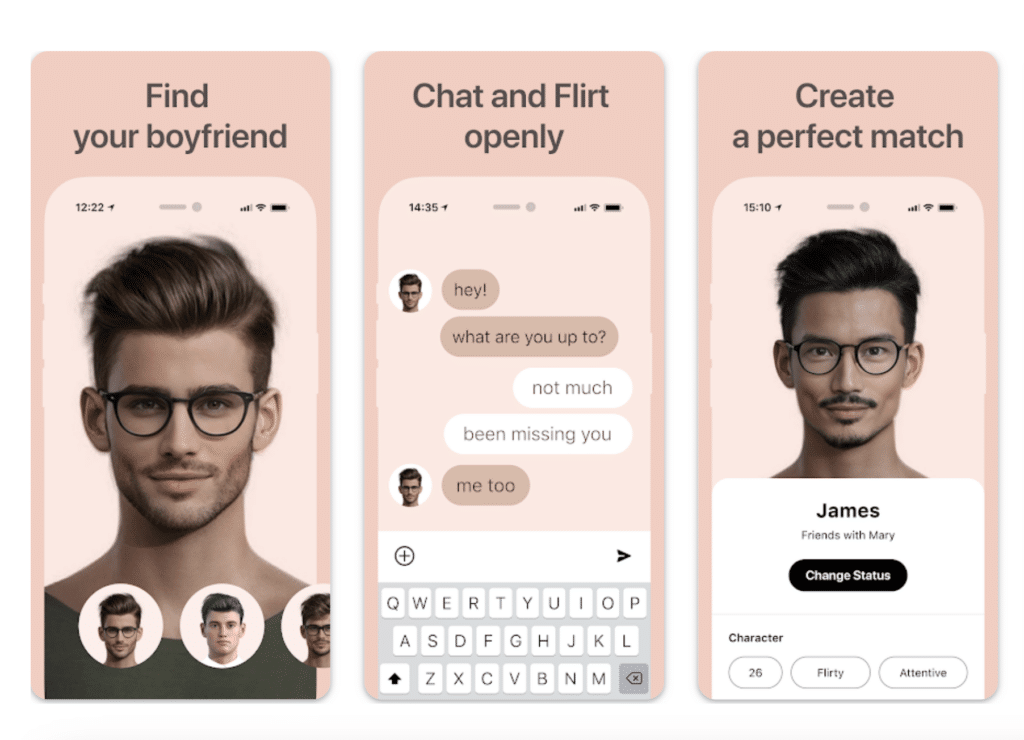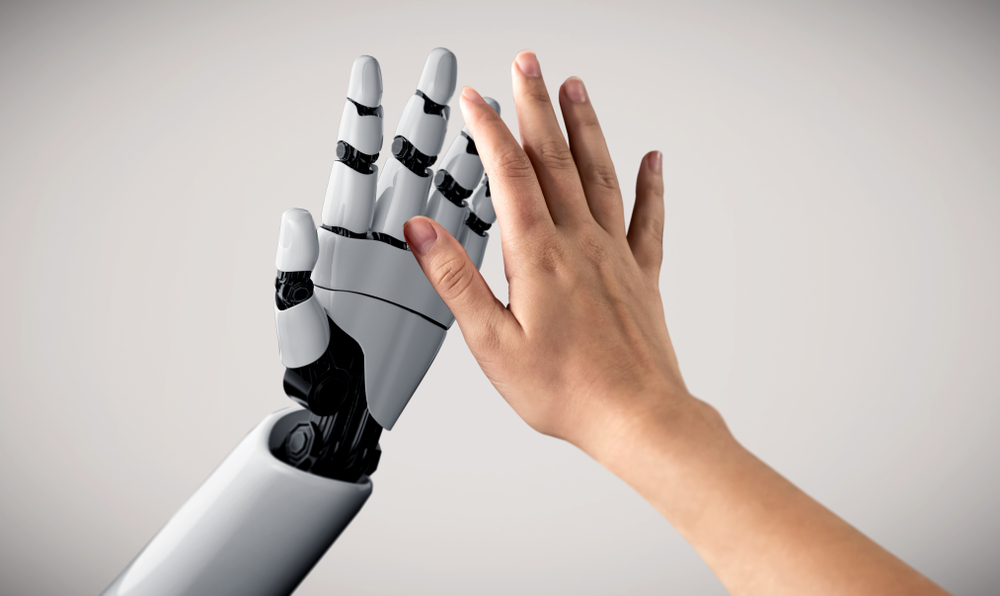While scrolling through TikTok recently, I came across an ad for an app that lets you chat with an AI boyfriend. The app was marketed as the ideal conversational partner: someone you can flirt with and build a digital relationship with. I was shocked that such an app even existed. Later that day, I discussed it with a friend. Do people actually use this? According to him, it was mainly a hype among young teenagers, something they try out of curiosity and for fun. That made sense to some extent. If I had been fourteen, I might have tried it too.
Still, I was left with a question: if young teenagers talk to a robot every day, is it just an innocent trend? Or are we witnessing the beginning of a larger, perhaps concerning societal shift? Can technology ever truly replace human interactions, and what does that mean for the way we live our lives?

A Long History of Fear
The fear that technological advances could harm social life isn’t new. When the telephone was introduced, people worried that face-to-face contact would disappear. Why visit someone when you could just call? Later, television sparked concerns about families losing quality time as they spent hours staring at a screen together. With the rise of instant messaging and texting, critics questioned whether digital communication would erode our social skills. Gaming brought similar anxieties, would virtual worlds eventually become more appealing than real life?
These fears are as old as technology itself. There have always been voices warning that we’re heading toward a dystopia where real-world connections lose their significance. Yet, face-to-face interactions have persisted. We’ve adapted to new ways of connecting without abandoning the old ones entirely.
AI and Human Relationships: A New Frontier?
However, AI adds a new layer to this ongoing conversation. Apps like the “AI boyfriend” go beyond simple communication. These technologies remember your preferences, respond in ways tailored to you, and create the illusion of a real bond. This raises critical questions: How might our expectations of relationships change if we grow accustomed to a “partner” who is always available, never judges, and meets our needs flawlessly?
Teenagers growing up with such technologies might become less willing to invest in the complexities of real relationships. In the real world, relationships involve conflicts, effort, and navigating the imperfections of others. But if AI spares us those challenges, will we prefer it?
A Future Without Human Connection?
The idea that AI could replace human interaction paints a bleak picture—a future where people turn to robots rather than each other. But is that scenario realistic? I personally don’t think there is any reason for big concerns. Despite AI’s advancements, there’s something fundamentally human about the need for genuine connection. Relationships are about more than convenience; they’re rooted in emotions, shared experiences, and the unpredictable nature of human interaction.

Adapting to Change
Looking back at previous technological revolutions, it’s clear that society has always adapted. Each new technology sparked fears, but over time, we found ways to balance innovation with social connection. AI will undoubtedly bring changes, but those changes don’t necessarily mean the end of human relationships.
For now, I don’t see a future where we all live in a simulation or abandon real-world connections entirely. Technology can complement our lives, but it’s unlikely to replace the fundamental need for human interaction.


Nice blog! It really addresses the balance between technological innovation and human connection. I agree that AI is unlikely to replace our need for genuine relationships, but I still worry about its impact on teenagers. Apps like “AI boyfriend” could set unrealistic expectations, making real-world relationships seem less appealing due to their complexities. I think it’s really we use AI responsibly, and we should be careful about apps like these.
While I don’t think the future is going to be as dystopian as movies like “Her” (do recommend it) depict, where people start dating their AI personal assistants, I do think digital media is having a significant effect on the ways in which we interact with eachother and form interpersonal connections.
One simple aspect I already see it is in the playgrounds. Rarely, if ever, do I see chilren playing on playgrounds anymore. I can only imagine that a lot of socializing happening in high schools, and even primary schools, is already happening online. I don’t want to say this is necessarily a bad thing, but I do think it could hinder young peoples abilities to form social connection through face-to-face interactions.
But who knows, maybe i’m just old.
I found your blog extremely interesting! Even though I don’t think, or hope, that AI or similar technologies can or will replace human connection or interaction I find it fascinating to think about. Even earlier today, I saw a video about a girl talking about a friends boyfriend breaking up with her in order to date his AI bot. I am unsure if that story is true or made up for views, but it definitely shows a po technologies tential for people to get further with these relationships.